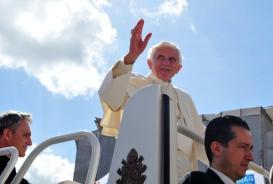CAIRO: Leaked Wikileaks cables said that the US ambassador to Egypt, Margaret Scobey, pressured the Ministry of Electricity and Power to award a tender for technical consultancy and design of Egypt’s first nuclear plant to Bechtel, an American company.
The cables published by independent daily Al-Mary Al-Youm said that Minister of Electricity Hassan Younes objected to awarding the tender to Bechtel, although it was initially chosen, after the American company insisted on changing some terms of the tender. The deal was then moved to Australian company, Worley Parsons.
Scobey allegedly met with Gamal Mubarak, assistant general secretary of the now disbanded National Democratic Party, and then she met with Bechtel representatives and Younes to express her concerns and demand clarifications from the Egyptian government on its decision, the documents claim.
"The results of this negative situation might be costly regarding future nuclear energy projects in the Middle East as the US could have been involved in later stages of the project if Bechtel won the tender but now it is excluded in favor of other international companies," said the cable.
Aktham Abu El-Ela, spokesman for the Ministry told Daily News Egypt on Thursday that there was pressure on the ministry to award the tender to Bechtel.
In December 2008, the ministry chose Bechtel from a number of offers to award it the tender but the American company demanded that a separate tender be held for the construction of the electricity generation station and demanded changes in the insurance on nuclear responsibility.
Bechtel wanted limited responsibility while the ministry wanted unlimited responsibility and both agreed on secondary responsibility which entails an insurance of $200 million to be paid by Bechtel in case of damages, which is also the same amount the ministry is paying in fees to the company.
According to the cables, after negotiations the company was informed that they didn’t abide by the terms of the tender and that they were excluded, which was met by a message from Bechtel expressing its disappointment.
"We informed Bechtel on April 11, 2009 and gave it until April 28 to reply but they replied on May 1," Younes told Scobey, according to the cable.
"They insisted on changing some legal terms in the tender and negotiations lasted for four months so we decided to hand it to the second company in the tender, Worley Parsons," the ministry spokesman told DNE.
"We abide by the laws and rules in Egyptian law in all tenders we organize and this case isn’t an exception," Abu El-Ela added.
Bechtel had not answer questions posed by DNE regarding the deal by press time.
According to the contract signed in July 2009, Worley Parsons will provide the ministry with technical consultancy and help design the nuclear power plant in Dabaa for the next 10 years.
The American embassy in Cairo refused to comment on the leaked cable. “We do not engage in any conversation about any reported cable,” the embassy said in an emailed statement.
Emad Gad, political analyst at Al-Ahram Center for Political and Strategic Studies, said “the American pressure is to defend its political and security interests rather than business interests."
"It is important for the US to have full and detailed information about the Egyptian nuclear program," he added.
According to the cables, a US diplomat suggested using "executive guarantees" reports that included information about the presence of highly enriched uranium in Egypt and unreported activities in 2005 to pressure Egypt for more transparency.
Mahmoud Barakat, former head of the Atomic Power Authority, told DNE that Egypt has always been fully transparent in giving information about its nuclear program and that there is no enriched uranium in Egypt.
"The report is meaningless and ineffective; the IAEA has been visiting Egypt regularly and if something was found, it would have been announced," he added.
He said that the "executive guarantees" reports referred to in the leaked cables might have been about a failed experiment that may have sparked controversy, stressing that no enrichment activities take place in Egypt.
Alan Fraser, Middle East specialist at AKE group for risk mitigation, said that the publishing of this information may have an impact on US-Egypt relations, particularly if it becomes a populist issue within the country.
"The incident itself may not be abnormal in context; it may result in increased pressure on the Egyptian government to resist overtures from Washington. However, given Egypt’s current position, and the necessity that it receive aid from global institutions such as the IMF, World Bank and the US itself, a significant cooling of relations would be unlikely over the short- to medium-term," he said.
Gad said that before the revolution, the regime would have cooperated for the US to pass the inheritance of power project but after the revolution, Egypt is less likely to be as cooperative.
The nuclear program is set to raise Egyptian electricity generation capacity by 4,000 megawatts (MW). Egypt plans to raise its annual capacity to reach 58,000 MW compared to the current 25,000.
Younes announced earlier this week that the ministry has completed preparation of the terms booklets and specifications for the tender to construct the nuclear plant.
He said that a tender will be announced and that they will continue to receive requests from international companies for six months that will be studied for two years when the winning company will be chosen. –Additional reporting by Brett Borkan.

